Nightmare Detective (2006)
Directed by: Shinya Tsukamoto
Written by: Hisakatsu Kuroki, Shinya Tsukamoto
Starring: Hitomi, Masanobu Ando, Ren Ôsugi, Shinya Tsukamoto
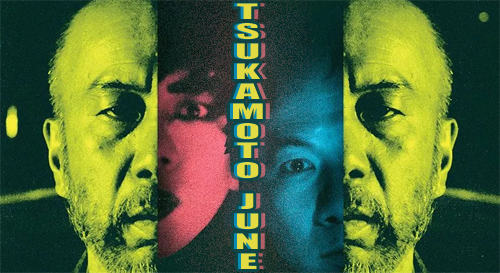
Available now to stream on demand
Welcome back to the Dream Zone gang. Oh and welcome back Tsukamoto fans. While the idea of seeing into somebody’s mind, or even sharing their nightmares, isn’t particularly novel, it’s always fun to see it tackled in movie form. After all, watching a film unfold is the ideal way to see someone else’s visions come to life. In the realm of film makers such as Wes Craven, Satoshi Kon, and beyond, the blurred line between reality and fantasy is perfect for the medium. However, in the case of Nightmare Detective it’s clear that the writers wanted to get in other elements including psychic powers and ghostly visions. How much of this tale succeeds is debatable as it jumps between real world loneliness and supernatural shenanigans.
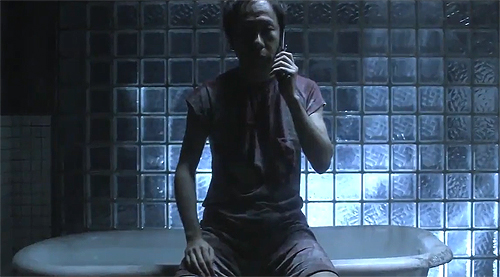
It’s a story which immediately feels like a commercial venture for the often eccentric director and star. The so-called detective Kagenuma (Ryuhei Matsuda) first arrives in the dream of an ageing family man who has nightmares of an eerie figure with long black hair. It’s hardly ground breaking stuff for a Japanese ghost story, although things take a strange turn when it’s revealed the client’s relatives aren’t a very sympathetic bunch. However, as it turns out Kagenuma doesn’t enjoy this line of work as it’s a risky process for both parties. He’s also troubled by the way he can hear the thoughts of people around him, although little explanation is given for this ability.
There are also few details to explain why the police department wants to hire a psychic during a strange case involving multiple suicides. Regular detective Keiko (Hitomi, another pop-star in a Tsukamoto movie) has her work cut out for her after requesting a transfer from a desk job to something more hands-on. Unfortunately she doesn’t enjoy the sight of blood and seems uneasy around her colleagues; the open minded Wakamiya (Masanobu Ando) and the jaded Sekiya (Ren Osugi). Still, despite these differences of opinion they eventually decide that the deaths are not what they seem. In each case the victims met their final moments in rather strange, and rather brutal, circumstances.
Strangest of all is the way they all called a mystery man known only as ‘0’ (Shinya Tsukamoto) before they died. Things get even weirder when they find ghostly voices recorded on these calls. But what’s the connection and how can Kagenuma help with his obviously limited powers? The title character suffers from a lot of Jacob’s Ladder type visions and also ends up being suicidal, which means he’s reluctant to help. But Keiko (perhaps rather unethically) insists that he comes on board. Unfortunately the story offers more questions than answers as it starts to throw in dream doppelgangers, telepathic suggestion, and problem parents.
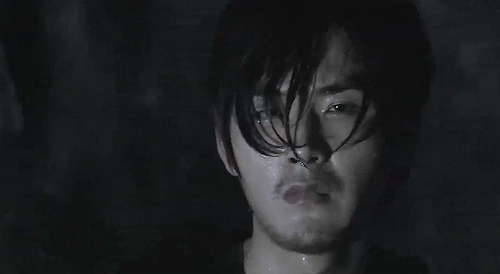
All of these ideas are thrown around without much focus beyond a vague theme of trauma being linked to thoughts of death and self-harm. It could all be saying something about isolation, guilt, and even ambition, but there’s never a good narrative through-line. It’s a delicate subject and the writers don’t really handle it with much nuance. Kagenuma isn’t in the film often enough for his character to be examined clearly, and there aren’t that many proper dream sequences. Keiko is too bland as a secondary lead and the day-time melodrama isn’t that compelling. It never commits to either a proper procedural or the nightmare investigation premise which seems like a missed opportunity.
At least the villain ‘0’ is more engaging. He apparently lives in another movie altogether; a classic Tsukamoto realm where he practices Tai Chi. Which is good because elsewhere the expected vibes are lacking. Chu Ishikawa’s music here is a disappointing mixed bag (occasionally feeling like Brad Fiedel but often seeming out of place) and the film relies on a clichéd Erik Satie piece for its strongest moments. The rest of the story is stylish occasionally; an invisible force zooming around is always fun as ‘0’ moves to find his victims, and the alienating glass city blocks of Japan are effective. But while the final dream battle combines gruesome bare tissue and car wreck imagery for maximum effect it’s perhaps too little too late.
There’s a lot going on here but it’s often kind of vague and muddled instead of capitalising on a high concept premise. The idea of ill-feelings at the point of death creating ghosts or dangerous supernatural forces is typical for this genre. But the other elements; be it mind-reading, resolving past trauma, or even just discovering subconscious needs, are too scattered and shallow. The film looks slick when the camera work isn’t too shaky, and the conclusion has some striking moments and reveals, but it’s an odd concoction in the grand scheme of things. Those expecting either fully surreal dream logic or a straightforward crime thriller (or a full combination of those genres) should temper their expectations accordingly.
Further Reading:




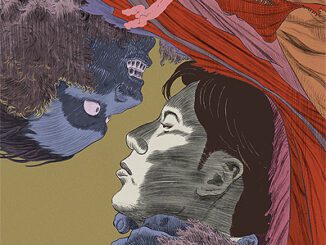
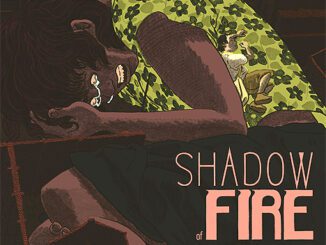
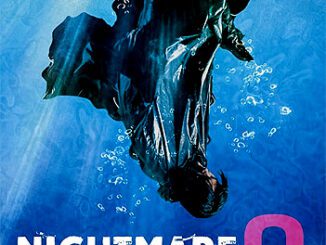
Be the first to comment